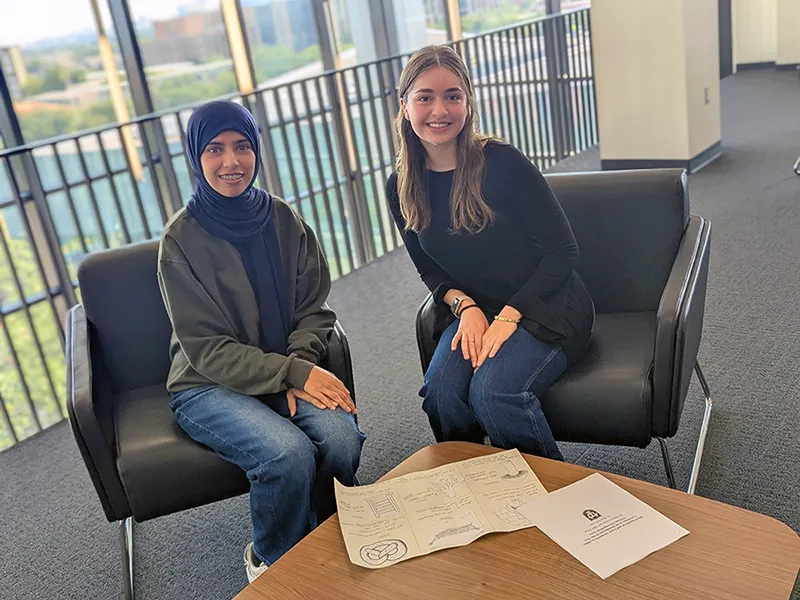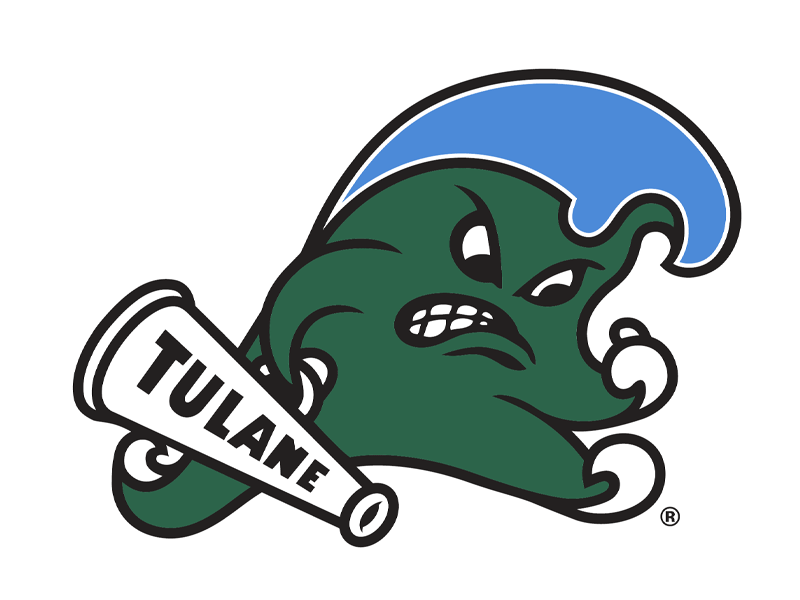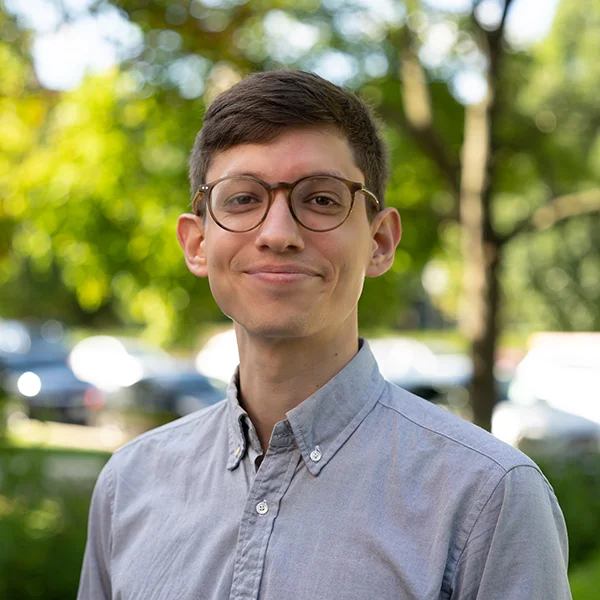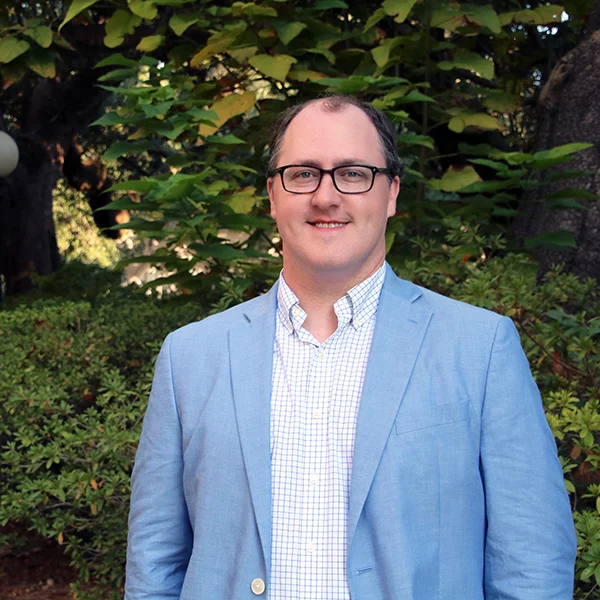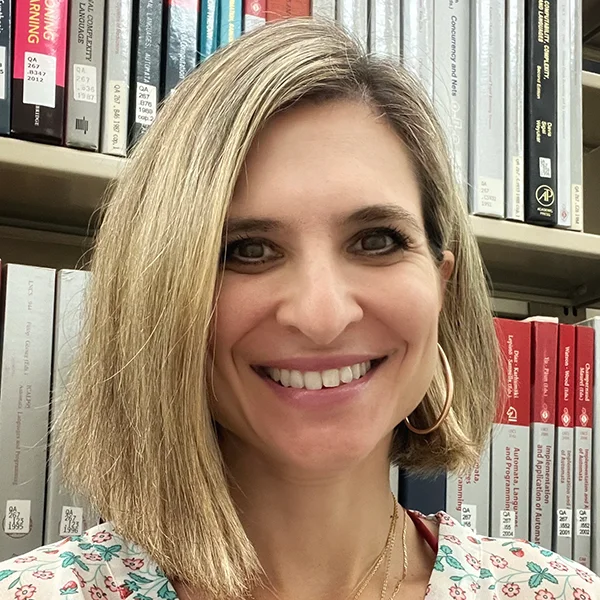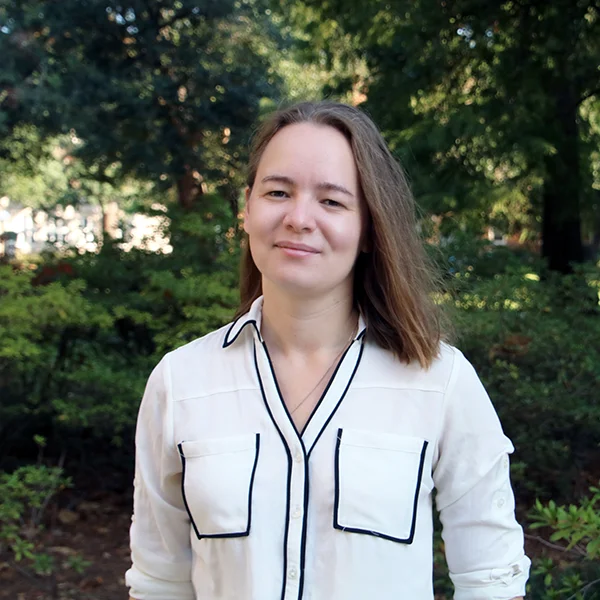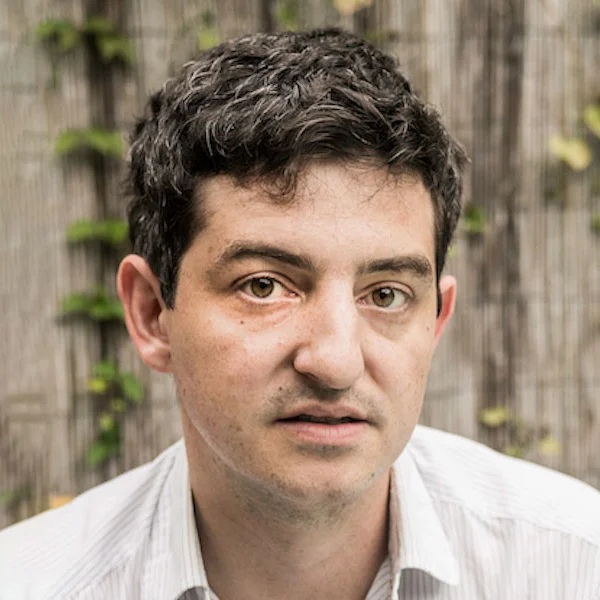Catching Up With Dean Edwards
Dear School of Liberal Arts Community,
This is a special fall at Tulane and of course for New Orleans. As we embark on the new academic year, we pause to remember all that was lost two decades ago during Hurricane Katrina and in its aftermath: the lives, the homes, and the institutions that were forever altered. Here at Tulane, there were large changes that followed in the wake of the devastation. Later that fall semester, President Scott Cowen would announce a series of structural changes that would lead to the creation of the School of Liberal Arts, which would formally launch in time for the start of the 2006-07 academic year. In the meantime, the 2005-06 academic year was spent “winding up the old and also about preparing for the new,” according to the School’s first interim dean, George Bernstein.
Nineteen years later, Tulane’s School of Liberal Arts is the home of 35 dynamic departments and programs, and more than 350 full-time faculty, teaching across a wide range of disciplines and interdisciplinary areas. Our faculty are producing important new research, making remarkable discoveries, creating innovative and inspiring art, and teaching the next generation of students during a period of political and technological transformation. You can read more about the department’s Summer 2025 accomplishments about some of their accomplishments from this past summer.
For me, the new academic year always brings optimism. Welcoming new students and new colleagues to the Tulane community is one of the great joys of serving as dean of the School of Liberal Arts. Summer after summer, we move from the celebrations that mark the passing of yet another remarkable cohort of graduates each May to the arrival of those who come to replenish our wellspring.
Last month, we inaugurated a new tradition: the School of Liberal Arts Assembly held during orientation week. We gathered incoming first-year students in McAlister Auditorium, along with the chairs and directors of all 35 of those departments and programs, to speak about the values of a liberal arts education and introduce them to the vast array of opportunities that our academic programs have to offer. With more than 1,100 classes each semester in our school alone, the possibilities are endless.
This year, we welcome 14 new tenure-line and professors of practice to the School of Liberal Arts. They are an exceptionally talented group, who in so many ways suggest how the liberal arts is evolving over time. From unexpected and innovative combinations — such as Brad Bolman, who researches the intersections of the human and non-human in both dogs and fungi and joins us as an assistant professor of History and Environmental Studies; to expanding our global strengths in Central, South and East Asia while building our strengths in the departments of Political Science and Communication, as do new faculty Valeria Umanets, Tupur Chatterjee, and Jane Pyo; to new research approaches and methods, such as Alexis Palmer, who is an expert in data analytics and political trust. In the arts, we welcome the dynamic João Enxuto, whose interdisciplinary art and research explores the digital realm.
There are many more new colleagues to welcome and learn about here in this issue, and each and every one reflects our huge ambitions and our commitment to bring world-class researchers into the undergraduate classroom. Whether you’re a colleague, a student, or an alum — or a member of our extended community — I hope you’ll engage with us over the coming year as there is much to be excited about with so many events, activities and gatherings ahead!
See you soon,

Brian T. Edwards
Dean and Herb Weil PhD Professor of the Humanities
School of Liberal Arts
Tulane University
Welcoming New 2025–2026 Liberal Arts Faculty
Tap Headshot for Bio
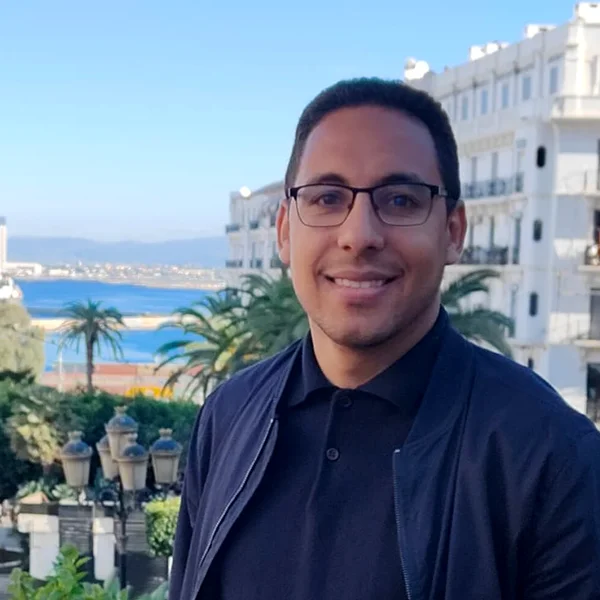
Ghazouane Arslane
Comparative Literature & MENA
Arriving January 2026*
*SLA Faculty Fellows are recruited shortly after completing their PhD studies and pursue a tenure-track professor path.
Brian T. Edwards
Dean and Herb Weil PhD Professor of the Humanities

School of Liberal Arts September 20 Newsletter


Dean and Herb Weil PhD Professor of the Humanities
Dear School of Liberal Arts Community,
This is a special fall at Tulane and of course for New Orleans. As we embark on the new academic year, we pause to remember all that was lost two decades ago during Hurricane Katrina and in its aftermath: the lives, the homes, and the institutions that were forever altered. Here at Tulane, there were large changes that followed in the wake of the devastation. Later that fall semester, President Scott Cowen would announce a series of structural changes that would lead to the creation of the School of Liberal Arts, which would formally launch in time for the start of the 2006-07 academic year. In the meantime, the 2005-06 academic year was spent “winding up the old and also about preparing for the new,” according to the School’s first interim dean, George Bernstein.
Nineteen years later, Tulane’s School of Liberal Arts is the home of 35 dynamic departments and programs, and more than 350 full-time faculty, teaching across a wide range of disciplines and interdisciplinary areas. Our faculty are producing important new research, making remarkable discoveries, creating innovative and inspiring art, and teaching the next generation of students during a period of political and technological transformation. You can read more about the department’s Summer 2025 accomplishments about some of their accomplishments from this past summer.
For me, the new academic year always brings optimism. Welcoming new students and new colleagues to the Tulane community is one of the great joys of serving as dean of the School of Liberal Arts. Summer after summer, we move from the celebrations that mark the passing of yet another remarkable cohort of graduates each May to the arrival of those who come to replenish our wellspring.
Welcoming New 2025–2026 Liberal Arts Faculty

Ghazouane Arslane
Comparative Literature & MENA
Arriving January 2026*
*SLA Faculty Fellows are recruited shortly after completing their PhD studies and pursue a tenure-track professor path.
Summer Highlights
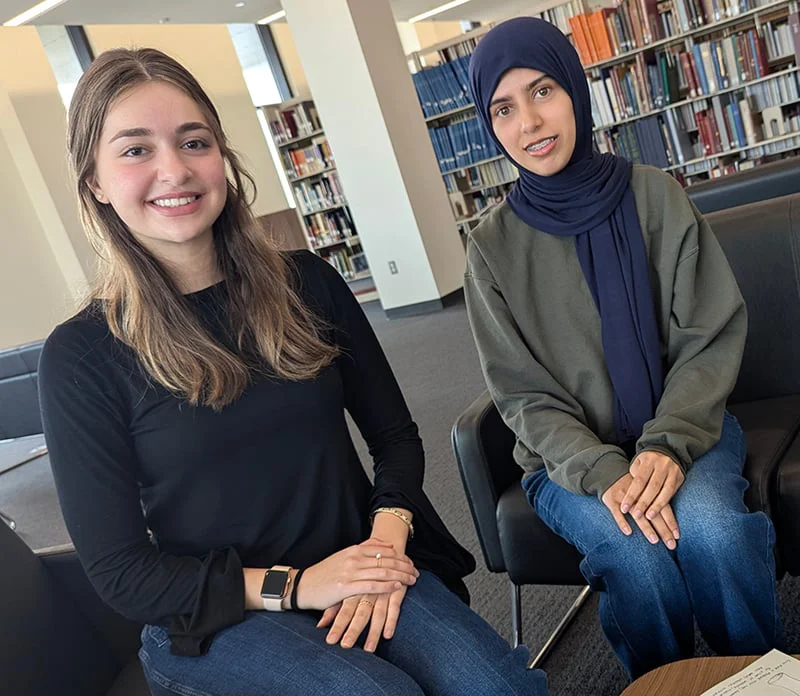
Tulane Students Lead Research to Make Dementia Diagnosis More Equitable
When Maya Zeitoun and Adan Abbas met in an Elementary Arabic class in fall 2023, they never expected their connection would kickstart their research on cultural deficiencies in cognitive assessment tools for dementia.
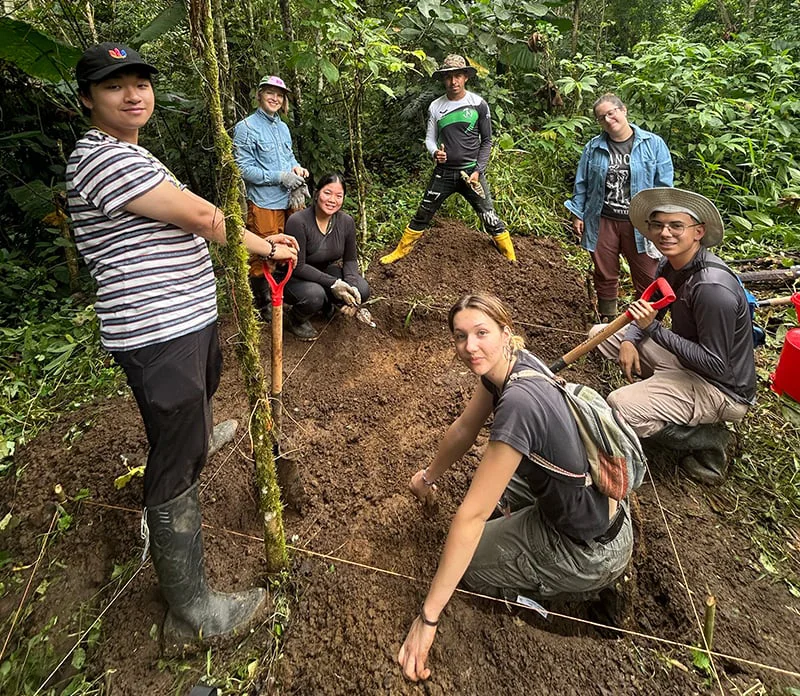
A Summer of Firsts for Tulane Students in Ecuador
The Tulane Interdisciplinary Environmental Research & Action Program (TIERA), offered students an opportunity to immerse themselves in a real-world, grassroots research and conservation program this summer.
Upcoming Featured Event

International Short Film Festival
Tulane's Biannual International Short Film Festival showcases the diversity of world cinema with a goal of celebrating the world’s diverse languages and cultures represented within our community and fostering cross-cultural understanding through carefully curated contemporary international short films.
Tuesday, October 14
5:00 p.m.
Lake Theater
RSVP
*SLA Faculty Fellows are recruited shortly after completing their PhD studies and pursue a tenure-track professor path.
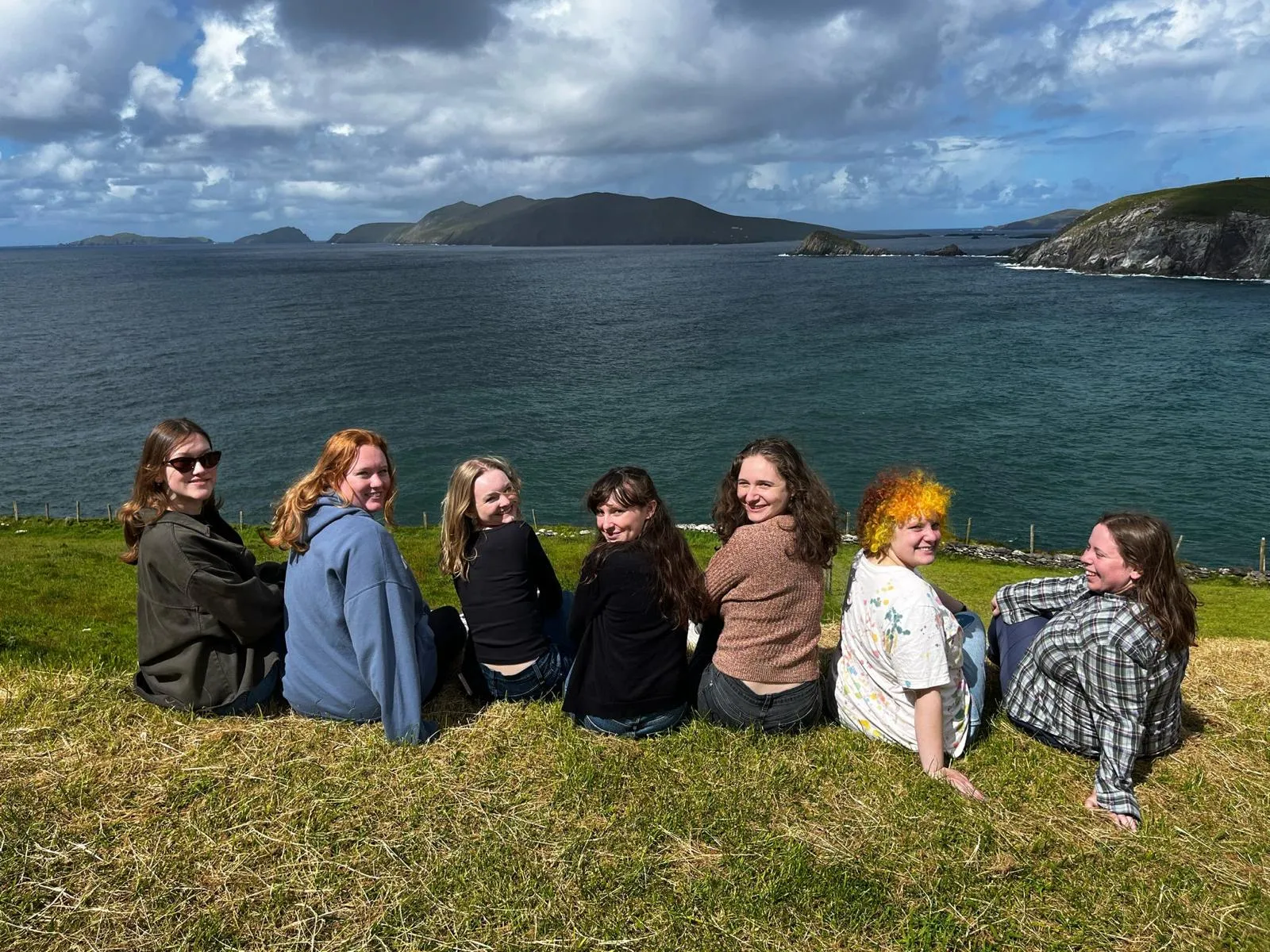
Tulane Students Lead Research to Make Dementia Diagnosis More Equitable
When Maya Zeitoun and Adan Abbas met in an Elementary Arabic class in Fall 2023, they never expected their connection would kickstart their research on cultural deficiencies in cognitive assessment tools for dementia. With the help of their mentor and professor Bouchaib Gadir, senior professor of practice for Middle East and North African Studies, the two pre-medical students outlined their research objectives and applied for funding from the Tulane Center for Engaged Learning and Teaching Faculty-Mentored Undergraduate Research Grant this past summer. After making it through the application process, they received the notification that they were awarded a grant to begin their work on tailoring the cognitive assessment tool, the Boston Naming Test (BNT), to better accommodate the cultural identity of older Levantine Arab immigrant adults in the New Orleans metropolitan area.
“Adan and Maya’s project bridges STEM and the liberal arts by combining neuropsychological testing with cultural analysis,” says Professor Gadir. “What makes their work particularly compelling is the interdisciplinary collaboration between two students from distinct academic backgrounds — Adan, a Cell and Molecular Biology major, and Maya, a Middle East and North African Studies major.”
The BNT is a widely used neuropsychological evaluation for assessing confrontation naming, or the capacity to name items in photographs. It is significant in dementia diagnosis since naming difficulties can indicate language deficits or cognitive decline. When administered, the BNT shows individuals 60 black-and-white photographs varying from common to rare items. Participants are asked to name each item within a time limit using either semantic or phonemic clues. The scores assist physicians in identifying naming problems that may suggest dementia, aphasia, or brain injury. But the test caters to English-speaking American adults by assuming familiarity with the pictures presented: test objects such as "pretzel" or "igloo," for example, are frequently unrecognized in Arab culture, resulting in errors that may not signify cognitive decline but simply unfamiliarity. These barriers might cause delays or distortions in diagnosis and treatment, restricting access to early treatments and support.
Maya Zeitoun’s focus on this research began after her Syrian grandmother, who lived in the United States, began to show early signs of dementia, though limited culturally appropriate resources caused uncertainty for an accurate diagnosis. “This research can bridge my passion for healthcare with my cultural background, while also supporting Arab communities, such as my grandmother, with reliable tools in detecting dementia,” Maya states.
Adan Abbas’s path to this topic was fueled by a connection to medicine and a strong desire to reduce healthcare barriers for minority communities. Adan shares, "As someone who is studying sociology and public health, I was drawn to this project after learning that language barriers can highly impact human development in a community." Her motivation strives to improve the lives of marginalized populations and uphold cultural identities in healthcare.
Linguistic issues such as diglossia (the employment of both Modern Standard Arabic and other dialects) can also impede the test's efficiency, causing further confusion. Furthermore, since the standard BNT only allows one correct answer, it may misinterpret multiple dialects as wrong. “These cultural and linguistic disparities can result in errors that do not reflect actual cognitive decline but rather differences in cultural exposure and language use,” Adan states. “By assessing the BNT to adapt to the differences in linguistics in Levantine dialects, dementia can be accurately detected with the support of culturally informed healthcare,” Maya continues. By adapting the BNT to cater to immigrants originating from the Levantine region, accurate results could be provided in detecting early signs of dementia throughout the New Orleans area.
“Our approach differs from the standard BNT by focusing on a patient’s socio-cultural context, as their answers can vary based on dialect, environmental factors, and cultural backgrounds,” Maya explains. “Compared to the BNT’s strict scoring system, we aim to provide a more flexible scoring system valuing culturally or linguistically relevant responses,” states Adan. These factors can improve accuracy for the Levantine Arab immigrants in dementia detection by incorporating meaningful cognitive differences and potentially pave the way for assessing other diverse populations — intertwining their fields to open new doors toward a culturally competent future in healthcare.
Students Adan Abbas and Maya Zeitoun.
